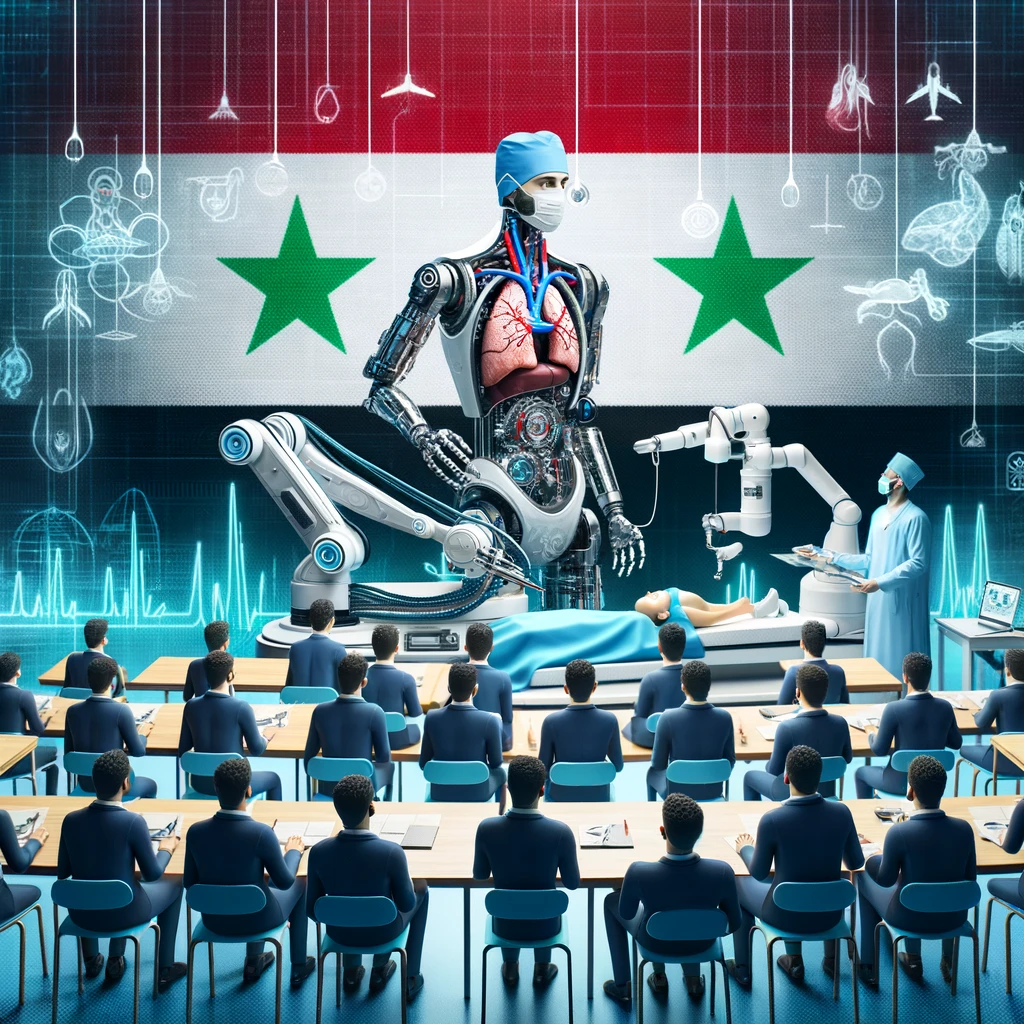Knowledge and attitudes of Syrian medical students regarding robotic surgery: A cross sectional study
DOI:
https://doi.org/10.61838/kman.najm.1.2.6Keywords:
Cross-sectional analysis, Healthcare technology, Medical education, Surgical innovation, Syrian healthcare, Technological acceptanceAbstract
Background: Robotic surgery represents a significant advancement in modern medical procedures, offering enhanced precision, control, and flexibility beyond human capabilities. Despite its growing prominence globally, the adoption and perception of robotic surgery in various regions, particularly in countries like Syria remain underexplored.
Objectives: The purpose of this research was to investigate the knowledge and attitudes of Syrian Arab republic medical students concerning robotic surgery.
Methods: An online cross-sectional study was conducted in Syria from 5 April to 17 may, 2022. The research included undergraduate medical students from government and private Syrian universities. The questionnaire was taken from a previous study and then modified to suit Syrian students, which was used to assess attitudes about robotic surgery.
Results: 862 medical students from governmental (92.2%) and private (7.8%) medical colleges filled out the online survey. 40.8% were interested in surgery specialties and, nearly half (46.3%) considered themselves as no tech-savvy persons. However, just 22.6% had prior robotic surgical knowledge, where the largest source of knowledge was the internet. A majority of the students (57.3%) had a favorable attitude toward robotic surgery, and 59.1% of them believed that the use of robots will lead to improvements in the results of surgical procedures. 40% of the participants considered that Syrian patients would not accept it. Furthermore, 40% were worried that robots could take the place of surgeons in the future, and (50.6%) believe this might make surgeons weak, hesitant, and less professional.
Conclusion: A large number of medical students in Syria have no experience with robotic surgery and know nothing about the procedures. Several recommendations should be made to improve clinical teaching using modern technology and robotic surgery, particularly for medical students interested in surgery.

Downloads
Additional Files
Published
Issue
Section
License

This work is licensed under a Creative Commons Attribution-NonCommercial 4.0 International License.



